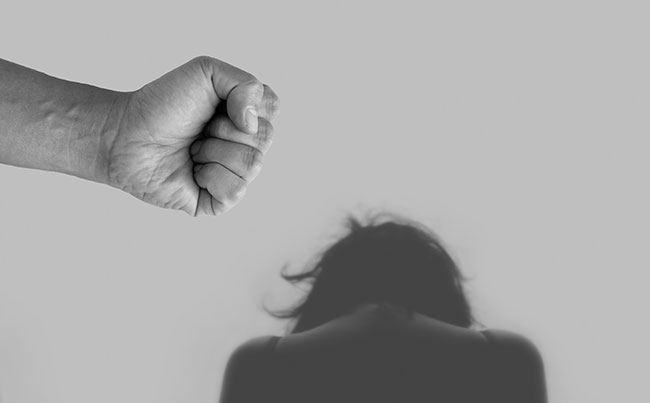Tuesday 4 June 2019 12:40pm

With elements in their nation’s social, cultural and religious systems stacked against them, Samoan women still experience high rates of violence.
While the Government of Samoa and the Ministry for Women, Community and Social Development have led a number of important initiatives to address violence against women in recent years more needs to be done.
A New Zealand Institute for Pacific Research (NZIPR) team involving the University of Otago, University of Auckland, and National University of Samoa, believe the church has undeniable potential to address this situation and are calling for teachings from the pulpit to change.
In its recently published NZIPR report, Church Responses to Gender-Based Violence Against Women in Samoa, the group examines how Samoa’s social, cultural and religious systems act to sustain the nation’s high rates of violence against women.
Samoa is shaped by traditional rules and customs, and its strong Christian faith, with 99 per cent of the population actively attending church.
Women are underrepresented in leadership due to traditional beliefs that prohibit them from obtaining matai (chiefly) titles in most villages.
Studies have also recorded rates of violence against women to be as high as 60 per cent. However, very few women seek outside support or help when they experience violence as the act is often viewed as acceptable – most adults agree it is ok for a man to beat his wife if she is disobedient, refuses sex, or neglects their children.
“Together these systems reinforce conservative gender values, and are deeply influential in shaping local responses to violence against women,” the report says.
Dr Mercy Ah Siu-Maliko, the project’s lead researcher, is based at Piula Theological College (Samoa) and is also a Research Associate of Otago’s Centre for Theology and Public Issues. She says the Bible has been used in Samoan churches to justify men’s presumed superiority over women.
In a paper recently published in the Journal of the Arts Faculty of the National University of Samoa, she challenges Samoan Christians to become agents for healing.
“Christian theology does not lack grounds upon which to stand against domestic violence. In fact, in the biblical concept of shalom (peace) we encounter a vision of a society without violence or fear.
“In the process of naming the church’s failure to address domestic violence, opportunities arise to discuss what it would be like if the church embraced its calling to respond to domestic violence as healers,” she says.
Ideals for male-female relationships in Samoan churches have been strongly influenced by the patriarchal system that dominates the Old Testament.
“Patriarchal theology continues to shape Samoan’s interpretation of the Bible. A literal reading of biblical passages is still used to justify men’s dominance over women and their right to physically ‘discipline’ women and children.
“Inherent in this approach to scripture is a patriarchal understanding of God. If God is a controlling male father-figure, then men must be like this masculine God, and the question then becomes, to what lengths does their control go?” she asks.
Many female biblical scholars have called upon the church to reject patriarchal aspects of scripture. They have re-read the Bible to highlight the underlying scriptural thread of God’s unconditional love for all creation, where both men and women are created in God’s image, and the liberating core of Jesus’ ministry, which was directed especially to those on the margins of society, including women.
“This re-reading of the Bible with fresh eyes is essential if the Samoan churches are to challenge the biblical underpinnings of their complicity in violence against women,” Dr Ah Siu-Maliko argues.
“Sustained work with biblical texts will address the temptation for churches to dismiss violence prevention as a purely secular issue, and offer generative resources that allow church members to recognise ways in which their church may be part of the problem.”
She believes core Samoan values can contribute to a public theology response to the issue.
“I propose that, by reviving, reinterpreting and applying the core Samoan-Christian values of fa’aaloalo (respect), alofa (love), tautua (service), amiotonu (justice), and soalaupule (consensual diaologue), Samoans can develop ways to initiate dialogue and respond to sensitive social issues such as domestic violence.
“If churches offer clear messages that violence against women is both unacceptable and illegal – both a sin and a crime – this would help to challenge the social acceptance of violence against women in Samoan culture and church life.”

Professor David Tombs.
Professor Tombs, Director of the Centre for Theology and Public Issues, also believes in the implementation of a public theology approach, highlighting the “enormous potential” provided by the church’s social position and influence.
“Teachings from the pulpit have great influence on gender role and development and perception of acceptable behaviour and conduct,” he says.
Along with academics, a 2018 National Public Inquiry into Family Violence, carried out by the Ombudsman, also called on the church to help tackle the issue.
It presented human rights, fa’asamoa, and faith as the three pillars on which a prevention strategy can be effectively developed. The inquiry’s report (OONHRI) states “the church is currently doing more to propagate views which lead to family violence than play a role in its prevention”.
Professor Tombs says that the work by Dr Ah Siu-Maliko’s shows the importance of the church in Samoan society and its potential to be proactively involved in responses to violence against women have also been increasingly highlighted in recent policy proposals.
There are also several Pacific approaches to contextual biblical studies available, including one edited by Dr Ah Siu-Maliko, but some of the resources are underused or not used at all.
“To date, very few churches have sufficiently embraced these opportunities.
“Some members see violence against women as an issue which is distant from church concerns, others deny that the problem really exists, while others seek to shift the blame onto victims.
“A deeper conversation on the issue is urgently needed with Samoan churches,” Professor Tombs says.
Publication details:
Mercy Ah Siu-Maliko, ‘Responding to Domestic Violence in Samoa through Enactment of Agatausili (Core Values)’, Journal of the Arts Faculty of the National University of Samoa (2018)
Responding to Domestic Violence in Samoa through Enactment of Agatausili (Core Values) (PDF format, 1.6MB)
Mercy Ah Siu-Maliko, Melanie Beres, Caroline Blyth, Ramona Boodoosingh, Tess Patterson, and David Tombs, ‘Church Responses to Gender-Based Violence Against Women in Samoa’ Auckland: New Zealand Institute for Pacific Research, 2019
For more information, contact:
Professor David Tombs
Howard Paterson Professor of Theology and Public Issues
Director Centre for Theology and Public Issues
University of Otago
Tel: +64 3 479 8450
Email: david.tombs@otago.ac.nz (David is currently overseas, please email in the first instance)
Dr Mercy Ah Siu-Maliko
Research Affiliate
Centre for Theology and Public Issues
University of Otago
Email: mercy.maliko@otago.ac.nz
